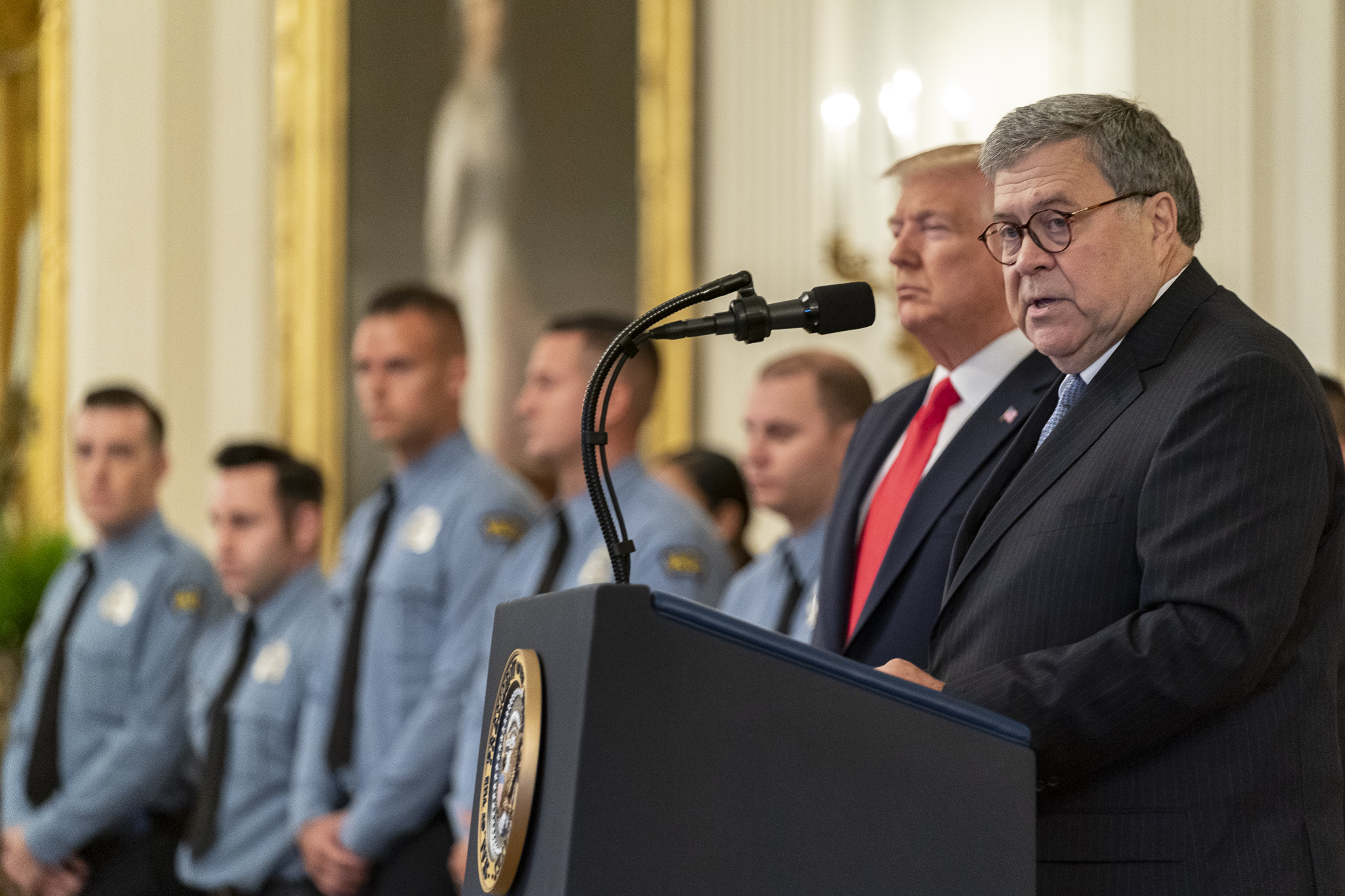Today's Headlines and Commentary
ISIS fighters have partially destroyed the 2,000-year-old Temple of Bel, continuing the group’s path of destruction across the ancient city of Palmyra. Earlier this month, the militant group detonated Palmyra’s Temple of Baalshamin, the Wall Street Journal reminds us.
Published by The Lawfare Institute
in Cooperation With

ISIS fighters have partially destroyed the 2,000-year-old Temple of Bel, continuing the group’s path of destruction across the ancient city of Palmyra. Earlier this month, the militant group detonated Palmyra’s Temple of Baalshamin, the Wall Street Journal reminds us. However, the Syrian antiquities chief told the Guardian that the temple appears to remain still standing at least in part, though other experts have been unable to assess the full extent of the damage.
As the battle against ISIS grows increasingly complicated, it’s worth taking a step back and tallying just how many conflicts have spun into the orbit of the anti-ISIS fight. The BBC is here to help with a rundown of the “four wars and counting” currently roiling the Middle East: coalition forces versus ISIS, Iran versus the Gulf Arab states, Turkey versus the PKK, and the Syrian civil war. Got that?
ISIS has detained 200 residents of a remote Iraqi town near the Jordanian border, the AP reports. Following clashes between residents and the ISIS fighters who control the town, the latter punished protestors by tying more than 100 people to streetlight poles for over a day and abducting 100 more to an unknown location, where they continue to be held. The protests were an unusual incident of public demonstration against the militant group within the regions under its control.
Turkey has finally made good on its promise to contribute to the anti-ISIS air campaign, beginning its bombardment of ISIS targets starting Friday evening. According to the Journal, U.S. officials had lobbied Turkey to bombard ISIS for over nine months before Ankara committed to joining the coalition in late July.
Ankara has announced a program to reward individuals who participate in the government’s anti-ISIS and -PKK efforts, AFP writes. Those who inform the government of the identity or location of a suspected “terrorist” may receive rewards of up to $1.37 million. And on another front of the Turkish crackdown, authorities have arrested two U.K. journalists associated with Vice News on suspicion of having ties to ISIS---though as the pair were covering the conflict between Turkish forces and the PKK, critics suggest that the move is likely politically motivated.
The bad news continues for freedom of the press: An Egyptian court has sentenced three Al Jazeera reporters and several co-defendants to three years in prison for reporting “false news” about the country. AFP tells us that, though the journalists were arrested in 2013 after the military overthrow of President Mohamed Morsi, current Egyptian President Abdel Fattah al Sisi has publicly stated that he regrets the initiation of the trial.
Meanwhile, Egypt has set the stage for the return of its parliament, which was dissolved in 2013 following the anti-Morsi coup. Elections will be held in two rounds beginning on October 17 and 18, Reuters reports. It remains to be seen what role the parliament will play under the government of President Sisi, who has been criticized for his anti-democratic leadership.
A literary interlude: Foreign Policy has an excerpt from Sean Naylor’s new book on JSOC, due out September 1. The piece details a 2008 JSOC mission to kill Abu Ghadiya, a senior al Qaeda operative whose responsibilities included running a major network of foreign fighters. But Defense One tells us that the Pentagon is less than happy over the leaks of classified information from within JSOC that contribute to Naylor’s book.
In Yemen, gunmen assassinated the government’s chief of security operations in the port city of Aden, AFP writes. The incident occurred as government officials struggled to maintain their control over the recently recaptured city. Meanwhile, airstrikes conducted by the Saudi-led coalition killed 36 civilians in what has become a sadly familiar refrain for an air campaign routinely accused of disregard for civilian life.
The Journal examines the growing role of the United Arab Emirates in the power vacuum that is southern Yemen. U.A.E. ground forces were instrumental in allowing the Yemeni government to seize control of Aden from Houthi fighters, in what is both an astonishingly ambitious foreign policy venture by the U.A.E. and the largest Sunni Arab ground operation against Iranian influence since the beginning of the Arab Spring. Yet in the absence of much of the Yemeni government, U.A.E. troops are increasingly taking on the role of nation-building.
With the end of August here and Congress soon heading back from its late-summer recess, it’s time for an updated whip count on the nuclear deal with Iran. 31 Senators are now in favor, The Hill reports, meaning that the Obama administration only has to round up three more votes to keep Congress from torpedoing the deal---or ten more votes to prevent an anti-deal measure from reaching the Senate floor, if the administration is feeling lucky. But even if the deal’s advocates manage to muster 41 votes to launch a filibuster, Republicans who oppose the nuclear agreement will do their best to exact a harsh political price.
On Sunday, an Iranian court sentenced two people to 10 years in prison on charges of spying for the United States and Israel. Yet their names were not released, meaning that the fate of the detained U.S. reporter Jason Rezaian remains unknown. The New York Times has more.
E.U. ministers will hold an emergency meeting on September 14 in an effort to address the growing European migration crisis, the E.U. Observer reports. France, Germany, and the United Kingdom requested the meeting. Europe faced harsh criticism over its failure to address the growing crisis last week, following the discovery of a truck filled with the bodies of refugees east of Vienna.
The Ukrainian parliament voted today on an initial measure to “decentralize” governance in the country’s separatist eastern regions. Backers hope the legislation will quell conflict and the threat of secession. Violence erupted outside the parliament building as nationalist protesters rallied against the law. One national guard member was killed and about 100 protesters were injured. The BBC has the story.
The Nigerian military has announced the arrest of 20 high-ranking members of the Boko Haram insurgency, Al Jazeera writes. The arrest occurred only days after Boko Haram militants killed 56 villagers in rural northeastern Nigeria.
For those of us still pondering the strange circumstances surrounding the delayed announcement of Mullah Omar’s death, some of the remaining questions have been answered: The Taliban has admitted to covering up their leader’s death for two years. The group continued to issue statements in Mullah Omar’s name, maintaining the fiction that he remained alive, in the hopes of lasting out the presence of foreign troops in Afghanistan. The Express Tribune has the story.
The Journal examines the shifting role of U.S. special-operations forces in Afghanistan. The forces occupy a “netherworld,” the Journal writes, “trying to find a middle ground between doing too much and too little” as the United States prepares for a total military withdrawal from the country by the end of 2016. Special-ops troops are doing their best to ensure the success of the Afghan security forces in the runup to U.S. withdrawal, tagging along on missions to help out but holding back from outright engagement in combat.
The Afghan district of Musa Qala has changed hands again, this time recaptured from the Taliban by Afghan forces. The Guardian writes that, according to officials, the Taliban’s lax efforts to hold onto the district may indicate that the militant group aims mostly to “attack for propaganda purposes.”
In a visit to Islamabad on Sunday, U.S. national security advisor Susan Rice urged the Pakistani government to increase its efforts against terrorism along Pakistan’s borders. Afghanistan has complained bitterly of Islamabad’s willingness to allow terror attacks to be plotted and launched from within Pakistan. According to the Times, Rice requested that Pakistan crack down more effectively on the militant Haqqani network especially---a particularly pointed appeal in the wake of reports that Pakistan may lose a significant amount of U.S. military aid over its failure to quash the network’s activities. She also pushed to restart Pakistan-sponsored peace talks between the Taliban and the Afghan government, which have been delayed since confirmation of Mullah Omar’s death.
This Thursday, Beijing will host an enormous parade marking the 70th anniversary of the end of World War II. The celebration is the first of its kind, Bloomberg tells us, and its display of Chinese power is unsettling China’s already-wary neighbors. Attending leaders will include Russian President Vladimir Putin, as well as Sudanese President Omar al Bashir—the latter still staring down the International Criminal Court’s warrant for his arrest. China is not a member of the ICC and therefore is not obligated to act on the warrant. Reuters has more.
Speaking of China’s jittery neighbors, the Guardian brings us the news that Japan is preparing its largest-ever defense budget. Concern over China’s aggressive construction of islands in the disputed South China Sea has put Japan on high alert. But despite this anxiety, Japanese Prime Minister Shinzo Abe still faces public opposition over his efforts to increase the role of the Japanese military, in a policy move that many Japanese citizens see as contradictory to the country’s post-World War II pacifist constitution.
The Hill reports that a Virginia teenager has been sentenced to 11 years in prison for assisting a friend in traveling to Syria to join ISIS, along with running a popular pro-ISIS Twitter account. The Department of Justice’s aggressive prosecution of the 17-year-old is indicative of increased government efforts to crack down on ISIS’s use of social media to recruit from within the United States. Likewise, a Kenyan man has been sentenced to 15 years in prison for providing money to al Shabaab.
Across the pond, U.K. counterterrorism laws may have been a major factor in leading the British Library to cut ties with the Taliban Sources Project, which aims to digitize primary source material on the militant group. The library received legal advice that hosting the material could lead to prosecution under U.K. law, the Times writes---particularly a set of laws that prohibit the collection of “material which could be used by a person committing or preparing for an act of terrorism,” though such laws only apply if the material in question is intended to be used in support of terrorism.
Foreign Policy lets us know that, months after announcing a change in its policy toward families of hostages held abroad, the White House has finally picked a “Hostage Czar” to coordinate hostage-release efforts. Former State Department official James O’Brien will take the role.
The FISA Court has once again renewed the NSA’s authority to continue collection of phone metadata from within the United States, The Hill tells us. This decision will be the final renewal before the USA FREEDOM Act takes effect at the end of November and does away with the NSA's longstanding telephony metadata collection program.
The Los Angeles Times reports on Chinese and Russian efforts to “aggregate and cross-index” data on members of the U.S. intelligence community in order to identify overseas undercover operations. Recent data breaches from sources such as OPM and---yes---Ashley Madison have made U.S. officials and agents newly vulnerable to foreign counterintelligence efforts.
Meanwhile, the United States may not have officially blamed China for the OPM hack, but the Washington Post suggests that the Obama administration may be getting ready to implement sanctions in retaliation for continued Chinese economic espionage. The sanctions package aims to crack down on Chinese companies and individuals who likely benefited from their government’s cyberattacks. Yet implementing sanctions against a geopolitical player as important as China is a risky business, which is why the administration hasn’t yet reached a decision on the matter---but it may do so within two weeks. Stay tuned.
European publishers are doing their best to fight back against Google, the Times indicates. Europe’s efforts to regulate the internet are largely aimed at pushing back against the company’s extensive reach, and publishers are leading the charge through lobbying for the aggressive implementation of copyright law.
Parting shot: There’s a new targetable entity under the laws of armed conflict, and it’s…certain legal scholars critical of U.S. counterterrorism efforts. The Guardian reports on this, um, novel (to put it gently in the extreme) legal theory, put forward by a West Point assistant professor. Meanwhile, we at Lawfare will be hiding under our desks.
ICYMI: This Weekend, on Lawfare
Ben posted this week’s Lawfare Podcast, featuring a special summer reairing of a previous discussion on a crucial legal question: how to legally prepare for an imminent zombie apocalypse.
Seamus Hughes wrote this week’s Foreign Policy Essay on the use of material support to prosecute radicalized young people in the United States.
Email the Roundup Team noteworthy law and security-related articles to include, and follow us on Twitter and Facebook for additional commentary on these issues. Sign up to receive Lawfare in your inbox. Visit our Events Calendar to learn about upcoming national security events, and check out relevant job openings on our Job Board.





